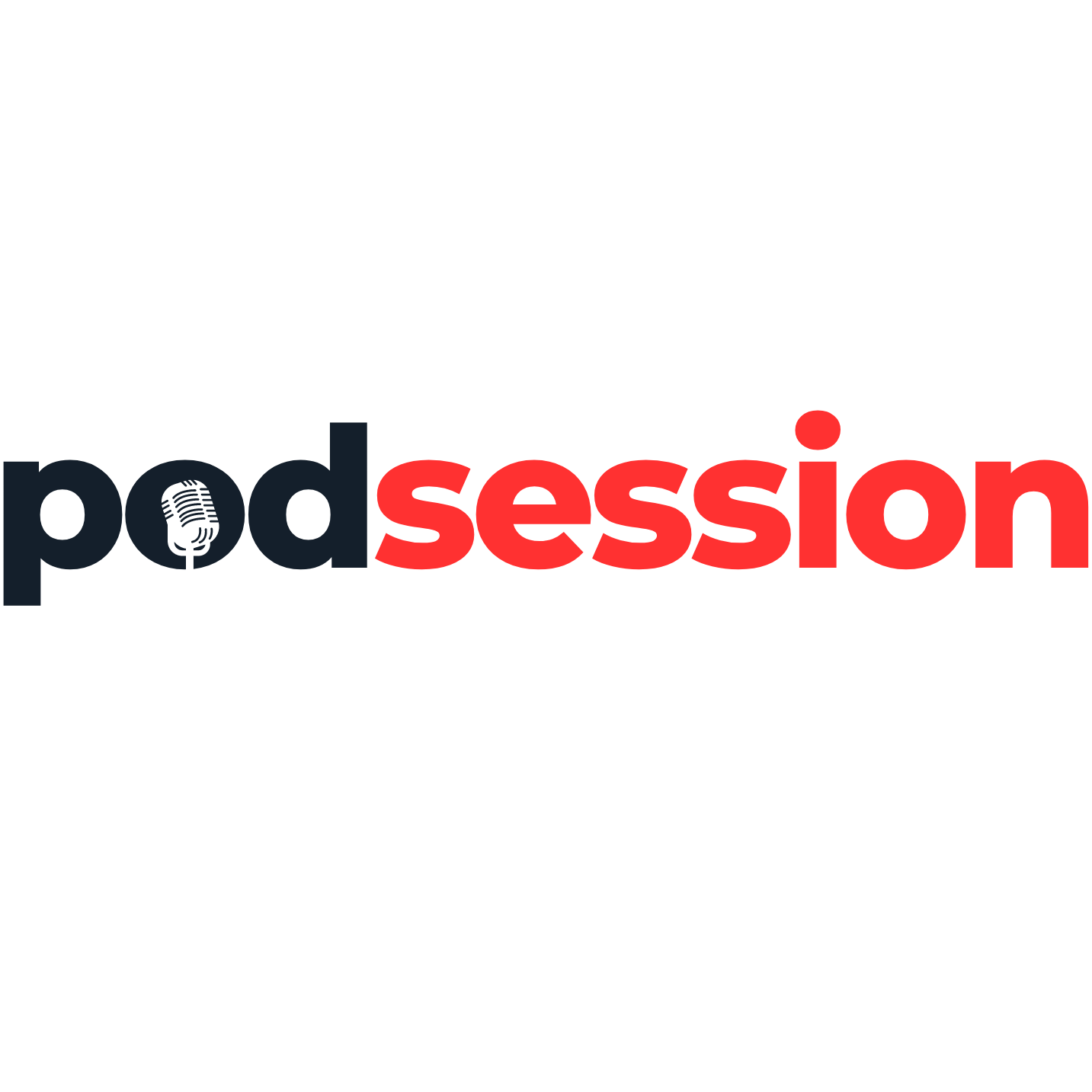
2.8K
Downloads
234
Episodes
🎙️ Welcome to Podsession, your daily dose of trending products, hot topics, and the latest news! Join us as we dive into what’s buzzing today—from the coolest gadgets and must-have products to the hottest conversations and breaking headlines. Stay updated and entertained with our expert takes and engaging discussions. Whether you’re a news junkie or just looking for what’s new, Podsession has something for everyone. Don’t miss out—hit that subscribe button and stay in the loop every day!
Episodes

Wednesday Sep 25, 2024
Wednesday Sep 25, 2024
Visit TopNaturalHealth.com for special promo code pricing for listeners of Podsession.
View our original article Matthew Sluka’s NIL Dispute: The Complexities of College Football’s New Financial Landscape here.
In the ever-changing world of college athletics, Name, Image, and Likeness (NIL) deals have introduced new challenges and opportunities for student-athletes and programs alike. One such case that has gained significant attention is the recent NIL dispute involving Matthew Sluka, a senior quarterback who left UNLV's undefeated football program amid claims of unfulfilled NIL promises. Sluka’s abrupt departure highlights the complexities and pitfalls of verbal NIL agreements, drawing attention to the ongoing need for clarity and regulation in the NIL space.
This article delves into the key details of the Sluka-UNLV NIL dispute, explores the broader implications of the NIL system in college athletics, and reflects on how this case could shape future NIL deals for student-athletes across the country.
The Rise of NIL in College Sports
What is NIL?
The Name, Image, and Likeness (NIL) policy, implemented by the NCAA in July 2021, allows college athletes to profit from their personal brand. For decades, student-athletes were barred from receiving compensation for their involvement in athletics, but the NIL era has shifted this landscape. Under NIL agreements, athletes can now earn money through endorsements, sponsorships, appearances, and social media promotions. These deals have empowered athletes to benefit from their skills and popularity, but the newfound freedom has also introduced potential complications.
How NIL Changed the College Recruiting Game
NIL opportunities have become a major factor in recruiting for top college programs. Prospective athletes are now considering the potential for lucrative NIL deals when deciding where to commit, placing additional pressure on universities to create competitive NIL structures. This new dynamic has changed how colleges interact with recruits and manage their rosters, and it has led to significant disputes when these deals fall through.
The Matthew Sluka-UNLV NIL dispute offers a stark example of how verbal agreements, a lack of written contracts, and unmet financial promises can create tension between athletes and schools.
Matthew Sluka’s Journey to UNLV
Background: From Holy Cross to UNLV
Matthew Sluka initially made a name for himself as a dual-threat quarterback at Holy Cross, where he led the team to multiple Patriot League championships. His ability to both pass and run made him a standout player in the FCS (Football Championship Subdivision), but after exhausting his time at Holy Cross, Sluka sought an opportunity at the FBS (Football Bowl Subdivision) level.
In 2024, Sluka transferred to the University of Nevada, Las Vegas (UNLV), a program on the rise after experiencing its best start to a season in decades. Sluka was seen as the missing piece that could propel the team to new heights, and he immediately contributed to the Rebels' early-season success, helping lead the team to a 3-0 start. However, his time at UNLV would soon take a dramatic turn.
The NIL Dispute: Unfulfilled Promises and Verbal Agreements
Verbal NIL Promises Gone Wrong
The crux of the dispute lies in an alleged verbal NIL promise made to Sluka during his recruitment to UNLV. According to Sluka’s representative, Marcus Cromartie of Equity Sports, an unnamed UNLV assistant coach verbally promised Sluka a $100,000 NIL deal as part of his commitment to the program. However, this amount was reportedly never delivered.
Instead of receiving the promised sum, Sluka was paid a $3,000 NIL payment, with discussions about a potential monthly stipend of the same amount continuing into the season. As the dispute over the NIL payment persisted, Sluka ultimately decided to leave the program, claiming that the unfulfilled financial promises played a significant role in his decision.
Sluka’s Strategic Departure
Sluka’s decision to leave UNLV was a carefully timed move. By playing in only three games, he preserved his ability to redshirt the 2024 season, allowing him to maintain his eligibility for one more year in 2025. This means that Sluka will still be eligible to play one more college season, opening the door for him to enter the transfer portal and explore opportunities at other schools.
UNLV’s Response and the Importance of Written Contracts
Conflicting Accounts
In the aftermath of Sluka’s departure, UNLV’s NIL collective, Blueprint Sports, disputed the claims of a $100,000 offer. Rob Sine, the CEO of Blueprint Sports, stated that no such deal had ever been agreed upon, and that Sluka had only received the initial $3,000 payment. According to Sine, discussions were ongoing about a monthly payment, but there was never a formal agreement for the larger sum.
This situation underscores the growing problem of verbal NIL agreements. While it is not uncommon for initial NIL discussions to be informal, the lack of a written contract left both parties vulnerable to miscommunication and unmet expectations.
The Need for Written NIL Agreements
The Sluka case illustrates the dangers of relying on verbal promises in NIL deals. Legal experts emphasize that student-athletes should avoid agreeing to NIL deals unless there is a written, signed contract in place. Without a formal contract, athletes run the risk of being left without the compensation they were promised, while universities risk losing key players in the middle of the season.
In light of this case, there is a growing call for student-athletes to be provided with more education and guidance on NIL agreements. Properly drafted contracts that clearly outline the terms of compensation can help prevent future disputes and ensure that both parties are protected.
Impact on UNLV’s Football Program
A Promising Start Derailed
At the time of Sluka’s departure, UNLV was off to its best start in decades, with the team entering the Coaches Poll for the first time in program history. The Rebels had achieved a 3-0 record, including a notable victory over Kansas that brought national attention to the team.
Sluka’s leadership and dynamic playstyle were key factors in UNLV’s success, and his sudden exit has left the team scrambling to fill the void at quarterback. Without their star player, the Rebels face an uncertain future, and the remainder of their season could be significantly impacted.
A Cautionary Tale for College Football
Sluka’s exit has broader implications for UNLV and other college football programs navigating the NIL era. As the case garners attention, it serves as a cautionary tale about the importance of clear communication, written contracts, and the potential volatility that NIL disputes can introduce to a team’s roster. Schools will need to be increasingly mindful of the NIL expectations set for recruits and the potential consequences of failing to meet those expectations.
UNLV’s Conference Realignment Dilemma
The Pac-12 vs. Mountain West Decision
Sluka’s departure from UNLV is only part of the larger story involving the Rebels’ football program. At the same time as the NIL dispute unfolded, UNLV found itself at the center of a conference realignment drama, with the program considering a move from the Mountain West Conference (MWC) to the Pac-12.
The Pac-12, which has been seeking to rebuild after losing several member schools, views UNLV as a critical target that could help the conference regain stability. For UNLV, the decision carries significant financial and political implications, as joining the Pac-12 could bring in more revenue and higher-profile matchups.
Impact of Conference Realignment on NIL
Conference realignment has a direct impact on NIL opportunities for student-athletes. Programs in Power Five conferences like the Pac-12 often provide athletes with higher-profile exposure, leading to more lucrative NIL deals. If UNLV were to join the Pac-12, it could potentially boost the NIL opportunities available to its athletes, including future recruits.
However, if the university decides to stay in the Mountain West, it may face more limited NIL prospects for its athletes, which could hinder its ability to attract top-tier talent. The outcome of UNLV’s conference realignment decision could play a pivotal role in the future of its football program and its ability to remain competitive in the NIL marketplace.
The Broader Impact of NIL on College Football
The Changing Landscape of College Recruiting
The introduction of NIL has significantly altered the college football recruiting landscape. As NIL deals become more lucrative, recruits are increasingly factoring potential NIL earnings into their decisions about where to attend school. This has shifted the balance of power in recruiting, with schools that have robust NIL collectives gaining a competitive edge.
However, NIL has also introduced challenges for both recruits and coaches. The lack of uniform regulations across states and institutions has created disparities in NIL opportunities, leading to uncertainty for both athletes and programs. Verbal promises like the one at the center of Sluka’s dispute have exposed the vulnerabilities in the current system, highlighting the need for more standardized regulations to protect athletes and schools alike.
The Transfer Portal: A New Era of Mobility
NIL has also impacted the transfer portal, giving athletes more flexibility to move between schools in search of better NIL deals. Sluka’s decision to redshirt and enter the transfer portal in December is a prime example of how athletes can leverage their NIL opportunities to their advantage. While the transfer portal has created new opportunities for athletes, it has also made it more difficult for coaches to retain top talent, as NIL disputes and offers from other programs can lead to sudden departures.
What’s Next for Matthew Sluka?
Future Prospects
With one year of eligibility remaining, Sluka’s future in college football remains bright. As a talented dual-threat quarterback, he is likely to attract interest from Power Five programs and schools with strong NIL collectives. Sluka’s experience at both the FCS and FBS levels, combined with his ability to navigate the NIL landscape, makes him an attractive option for programs looking to bolster their quarterback position.
Reputation and Marketability
Ironically, Sluka’s high-profile departure from UNLV could enhance his marketability in the transfer portal. Schools and NIL collectives may view him as a player who understands his value and is willing to advocate for fair compensation. However, future programs will likely seek assurances that similar disputes won’t arise, meaning that any future NIL deals will need to be clearly documented and agreed upon in writing.
Final Thoughts: The Need for Clarity in the NIL Era
The Matthew Sluka-UNLV NIL dispute serves as a cautionary tale for athletes, coaches, and schools navigating the complexities of NIL agreements. As college football continues to evolve, it is clear that verbal promises and informal agreements are insufficient to ensure transparency and fairness in NIL deals. Athletes must be vigilant in securing written contracts, and schools must prioritize clear communication to avoid future disputes.
The Sluka case is also a reminder of the profound impact NIL has had on college sports, from recruiting to player mobility. As the system matures, it is likely that more formal structures and safeguards will be put in place to protect the interests of both athletes and institutions, ensuring that college football remains a fair and competitive environment in the NIL era.

No comments yet. Be the first to say something!